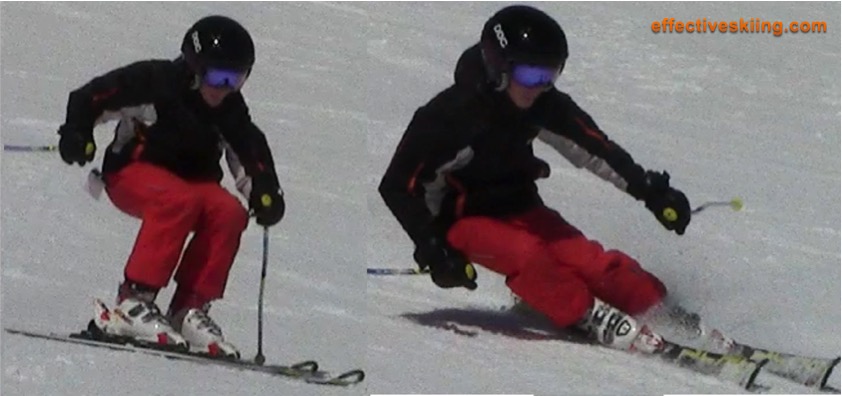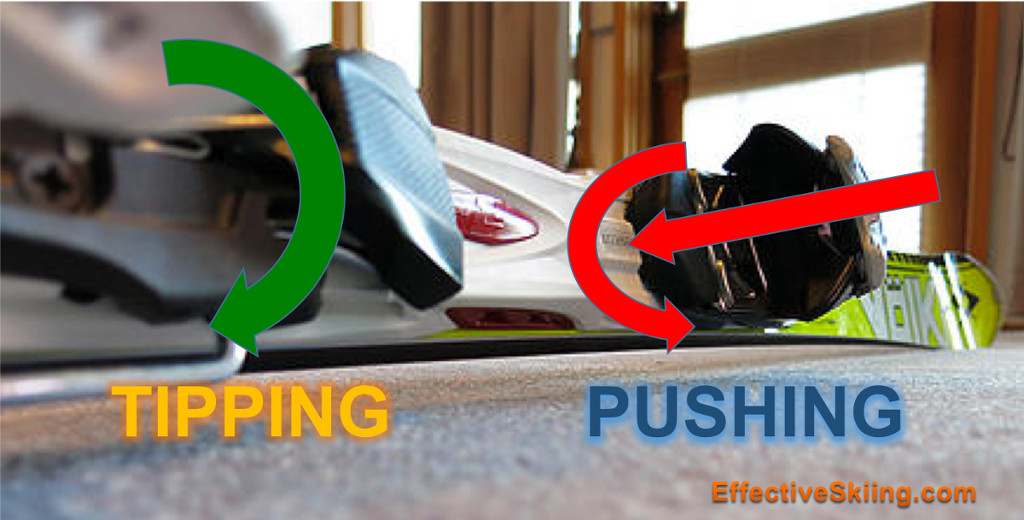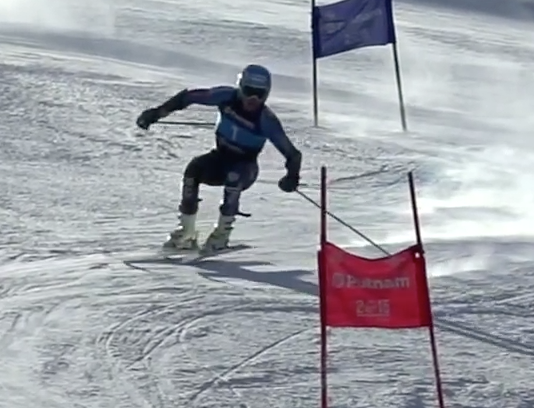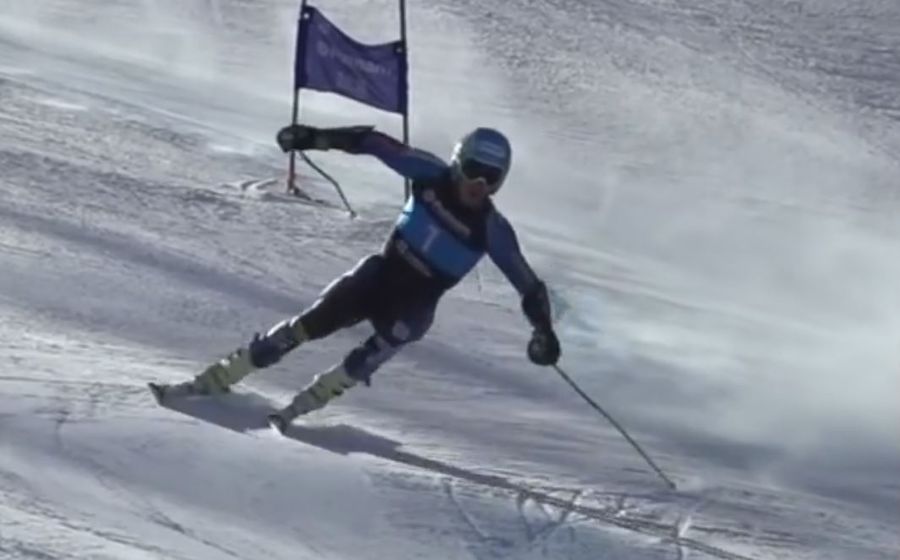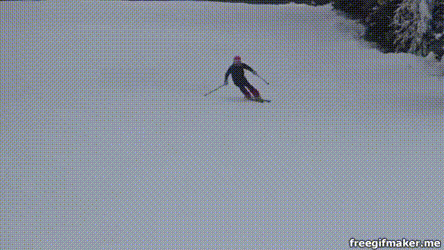Extension kills tipping
Subscribe
Pub
Share
In the bucket of most misunderstood concepts of high-performance skiing, extension and pushing are right up there... let's clear some aspects surrounding these two.
An aggressive extension is a shortcut to getting less, but immediate, reaction from the ski... flexing requires patience to get more performance from the ski! HeluvaSkier
Some extension of the new outside leg is necessary following a flexed transition, to maintain snow contact while creating edge angles, part of Long leg and short leg:
However, this extension better be passive, i.e. not pushing into the skis. Pressure should come as late as possible, because whenever pressure comes, it will stop tipping and angle creation:
While rolling the ski on edge, you are trying to hinge the middle of the ski over the inner edge, but when you put weight or push into the skis, the resultant force vector is applied in the middle of the ski and will in fact try to flatten it, opposing the tipping or edging you were trying to do. So by passive extension we mean that the extension is timed with the movement of the hips and the flow of the turn, to just maintain snow contact and allow a gradual engagement of the ski, rather than an active or aggressive pressure application!
Also, consider that it is hard to tip a weighted ski and you can see that unweighting the skis not only puts the ankle in open-chain mode but also removes any obstacles to tipping, so pushing into the ski, is the last thing you should be doing when trying to increase the edge angles.
Look how light and low Ted is in this average GS transition (average for him):
...and how much he extends gingerly at the top of the new turn, with no sign of pushing into that outside ski (clue: no snow spray):
Sessions to work on these skills:
See more in: carving-blog Subscribe You need to log in to post a comment!
